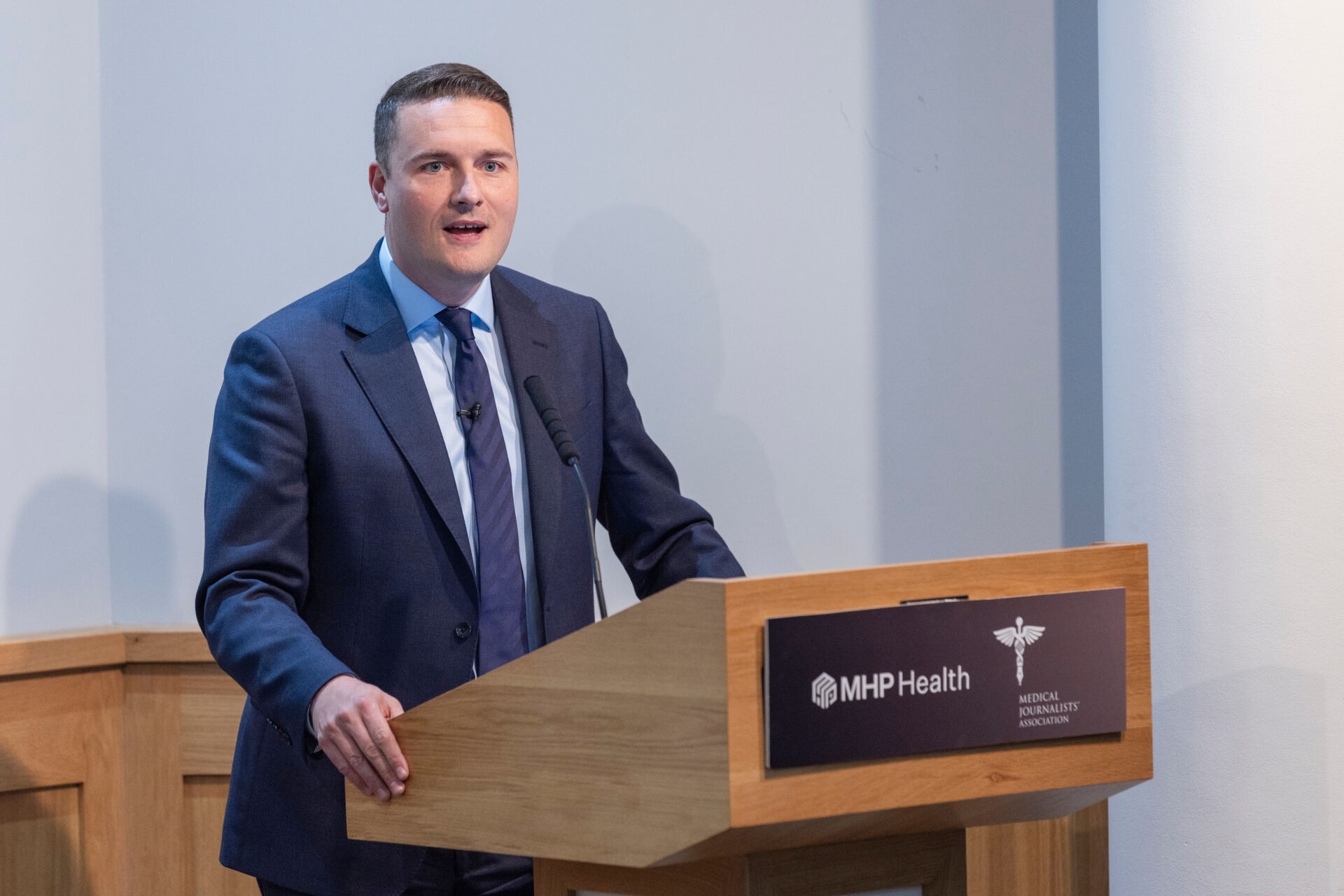The new health secretary, Wes Streeting, committed to ‘reversing’ the underfunding of primary care and to make more of a neighbourhood health service during his first official visit.
Mr Streeting was joined by NHS England chief executive Amanda Pritchard yesterday at Abbey Medical Centre, a GP practice in St John’s Wood, London.
The health secretary said: ‘Patients are finding it harder than ever to see a GP. Patients can’t get through the front door of the NHS, so they aren’t getting the timely care they need.
‘That’s no surprise, when GPs and primary care has been receiving a smaller proportion of NHS resources. I’m committed to reversing that.’
The health secretary also said he is ‘determined to make the NHS more of a neighbourhood health service’, because if patients cannot access their GP, they ‘end up in A&E’ which is more expensive and worse for patients.
‘My first visit as health secretary was to a GP practice because when we said we want to shift the focus of the NHS out of hospitals and into the community, we meant it,’ Mr Streeting added.
Ms Pritchard said GPs and their teams ‘are the bedrock of the NHS’ but they are ‘under huge pressure’ to deliver.
‘We know there is much more work to do to support them and to transform primary care services. We look forward to working with the Government and colleagues in primary care to do that,’ she added.
RCGP chair Professor Kamila Hawthorne has said she is ‘really encouraged’ that Mr Streeting’s first visit was to a GP practice.
She also welcomed his commitment to increase funding, but said they ‘now wait to see exactly what that funding and additional support will look like’.
‘Alongside this extra funding, we look forward to working with Wes Streeting and his team to ensure that we have the right balance of workforce we need to look after our patients, in particular we need more GPs working in our practices,’ Professor Hawthorne added.
To support with wider NHS reform, the Government is set to bring back former Labour health secretary Alan Milburn, who spearheaded increased private involvement in the NHS.
On the first day in his new role, Mr Streeting announced that the ‘policy’ of his department is that the ‘NHS is broken’.
He also committed to negotiations with the BMA junior doctors committee to end strike action, he met with them today and agreed to meet again next week.
Following Labour’s election win, health policy leaders have been setting out what they want to see from the new Government.
NHS Confederation, chief executive, Matthew Taylor, said. ‘Ministers know they are inheriting a bulging in-tray. There is a funding crisis engulfing the NHS and resolving pay disputes with junior doctors and GPs must be an urgent priority. Otherwise, the clear risk is that the task of tackling lengthy waiting lists and restoring performance in other areas will be held back.
‘But we must be under no illusions that these are the only things that need to be done – the road to recovery is going to be very long following a decade of underinvestment in the health service.
‘Our members are hopeful the new Government can support the NHS to turn a corner following austerity, the pandemic, industrial action and other recovery challenges. We are all encouraged by the pledges set out by the Government before it took office, but now those pledges need to be backed up by action.’
Earlier this year the Confederation set out five priority areas for a new Government.
The British Medical Association (BMA) said Mr Streeting needs to work closely with the union to get the ‘NHS back on its feet’, with priorities including stabilising primary care in England, addressing the issue of medical associate professions (including physician associates) and resolving the junior doctors’ pay dispute.
Professor Philip Banfield, BMA chair of council, has written to Mr Streeting to express ‘his hopes of restoring the family doctor and continuity of care in general practice to provide better value and better care for patients’.
‘To stabilise primary care in England, a new contract must be “mutually agreed” between the Government and GPs,’ he said.
Professor Banfield has also urged the new Labour Government to pay attention to the medical associate professions (MAPs). He wrote: ‘MAPs are being employed across the NHS without any defined national scope of practice, posing a real and present patient safety risk.
‘The profession will be looking for you to take urgent action; the dangerous substitution of doctors must be stopped.’
In addition, he asks for Mr Streeting to view the BMA as a ‘constructive partner’ that can help him deliver the Government’s plans to cut waiting lists and rebuild the NHS.
NHS Providers,chief executive, Sir Julian Hartley, said that resolving ongoing industrial disputes and restoring staff confidence by announcing the next round of pay awards were vital first steps.
‘Trust leaders have welcomed Labour’s pledges to make mental health services a priority, to tackle race discrimination and to make sure that everyone gets the same high quality of care. Underpinning all of this must be an open and learning culture within the NHS.
‘Labour has acknowledged too the need for more capital investment to improve quality of care and tackle the £11billion-plus repairs bill for essential repairs to crumbling NHS buildings, equipment and facilities. Support for the New Hospital Programme is welcome but urgent clarity is needed now on funding timelines for delivery. Patients and staff can’t wait much longer for vital improvements,’ he said.
Before the election NHS Providers published a vision of how hospital, mental health, community health and ambulance trusts can work with the Government to build the ‘next generation’ NHS.




